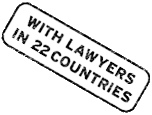Download: in English, in French, in Arabic
For five decades, Morocco has occupied and exploited Western Sahara in blatant violation of international law. We, European lawyers, call upon the European Union, its Member States, and the United Nations to uphold international law, universal human rights, and the rulings of the Court of Justice of the European Union (CJEU) by taking a clear stance: the colonisation of Western Sahara must end.
Sovereignty over Western Sahara belongs exclusively to the Saharawi people. The International Court of Justice (Advisory Opinion, 1975) has confirmed that Morocco has no territorial sovereignty over Western Sahara, and the territory remains on the United Nations list of Non-Self-Governing Territories, awaiting decolonisation.
Following the end of Spanish colonial rule, Morocco invaded Western Sahara in October 1975. The Saharawi independence movement, POLISARIO, resisted occupation, leading to years of war that paused only with the 1991 UN-brokered ceasefire and the promise of a referendum on self-determination. Morocco has consistently sabotaged that referendum and, since 2020, has openly violated the ceasefire. Today, war has resumed, while the international community largely remains silent.
Fifty Years of Illegal Occupation Have Meant:
1. Systematic Human Rights Violations
- Crimes against humanity, including demographic transfer, repression, killings, and widespread arbitrary detention.
- Surveillance, harassment, and violence against activists; organisations such as CODESA are effectively silenced.
- Morocco’s use of drones against civilians constitutes a grave violation of international humanitarian law.
2. Separation and Forced Exile
- Half of the Saharawi people live in refugee camps in Algeria’s desert under extreme climate conditions; the rest live under occupation or in exile.
- Entire generations have grown up stateless, with no certainty of return to their homeland, fueling despair and instability.
- Forced allegiance policies in the occupied territories undermine the Saharawi people’s right to identity and dignity.
3. Plunder of Natural Resources
- Systematic exploitation of phosphates, fisheries, and agriculture in defiance of international law.
- EU institutions and Member States continue illegal trade despite repeated CJEU rulings, most recently in October 2024, declaring such agreements invalid.
- By engaging in these activities, international actors risk complicity in the crime of occupation.
4. Geopolitical Interests Over Justice
- European governments remain silent, prioritising trade, migration control, and strategic alliances over international law.
- Western Sahara is treated as a geopolitical blind spot, despite the conflict’s destabilising impact on the Maghreb and the Sahel.
5. Resistance and Hope
- Despite oppression, the Saharawi people’s struggle for self-determination endures.
- Saharawi women sustain community life in refugee camps while leading resistance efforts.
- Global solidarity continues to strengthen their demand for democracy, justice, and freedom.
We Call on the European Union and its Member States to:
- Uphold international law by insisting on a democratic solution based on a referendum, as guaranteed in the 1991 UN ceasefire agreement.
- Reject Morocco’s claims of sovereignty, unilateral partition, or so-called “autonomy plan,” all of which violate the Saharawi people’s fundamental right to self-determination.
- Enforce CJEU rulings by halting economic activities involving resources from occupied Western Sahara and ensuring compliance by European companies and governments.
- Extend MINURSO’s mandate to include monitoring of human rights violations in the occupied territories.
- Condemn ongoing human rights abuses and demand the release of Saharawi prisoners, including the Gdeim Izik group, while investigating Morocco’s targeting of civilians with drones.
- Provide urgent humanitarian aid, especially food and water, to Saharawi refugee camps in Algeria, where living conditions are deteriorating due to climate pressures and underfunding.
- Introduce accountability mechanisms, including an independent international human rights monitoring body and regular reporting by the European Parliament on the implementation of CJEU rulings.
- Apply diplomatic and economic pressure by conditioning EU–Morocco Association Agreements and other bilateral trade relations on respect for human rights and democratic principles.
Conclusion
Western Sahara is the last colony in Africa. Fifty years of occupation is fifty years too many. International law is clear: the Saharawi people have the right to self-determination and sovereignty over their land and resources. The EU and its Member States have a legal and moral duty to act decisively and to end complicity in Morocco’s illegal occupation.
The time is now: Europe must stand for a free and self-determined Western Sahara.

